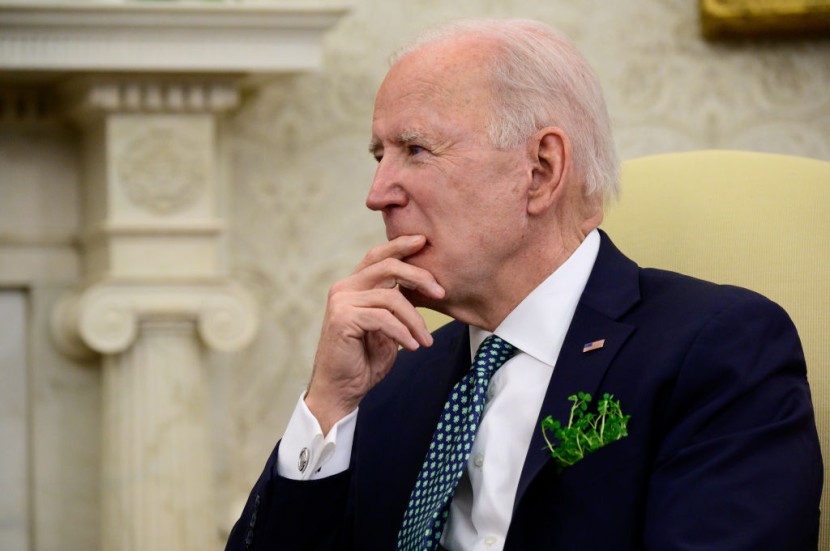President Joe Biden's $1.9 trillion stimulus bill would undoubtedly help the economy, but he may come to regret not using the money more wisely. COVID-19 spending in 2020 increased the budget deficit from $1 trillion in 2019 to $3.1 trillion in 2020. The Fed printed money to fund it all by buying Treasuries and other securities. Its balance sheet grew by $3.2 trillion, and 10-year Treasury interest rates fell below 1 percent, as per MarketWatch via MSN.
Why may Joe Biden regret the $1.9 trillion stimulus bill?

Importantly, the 10-year Treasury yield serves as a benchmark for private-sector short- to long-term debt. Households were able to save a significant portion of their stimulus checks. Stronger firms invested aggressively to keep afloat, while healthy companies cut back on spending and built up cash reserves.
Unemployment and rent evictions could soar
Even with the assistance promised by the ARA, higher interest rates could drive unemployment and evictions to socially intolerable levels later this year as mortgage payments, and rent moratoriums are phased out. Much of this was about a year after left-wing demonstrators caused protests and political unrest in big cities, just six months after right-wing protesters invaded the Capitol.
On top of his $1.9 trillion stimulus bill, Biden now needs another comprehensive package to boost private-sector competitiveness, including housing, support for the transition to renewable energy and electric cars, and industrial policies to counter China's threat. And to achieve greater equality and social justice, such as making the ARA's one-year raise to the child, dependent care, earned-income tax credits, and food stamps permanent.
Biden's political agenda included a slew of higher taxes on high-income individuals and businesses. If completely introduced, they would generate around $400 billion a year, but it would be insufficient to fund his ambitious plan.
More spending may lead to higher interest rates or inflation, and the president could think he could have used some of the $1.9 trillion in the ARA for that reason. When he sees the bill for building a sustainable, stable future, he would feel like a young man who squandered his inheritance on high living.
Donald Trump Says He Wrote a Letter to Joe Biden 'From the Heart'
Biden's eyes on extending ban on renter evictions
As the U.S. government tries to buy more time for an estimated 10 million households who have fallen behind on their rent, the Biden administration is considering whether to extend a soon-to-expire federal provision that bans landlords from evicting their cash-strapped renters. According to two people familiar with the situation who spoke on the condition of anonymity to explain a decision that is not yet definitive, the extension under consideration could last at least until July. The federal eviction ban will expire in seven days without allowing certain Americans to be evicted from their houses, Washington Post reported.
According to two people familiar with the situation, the Biden administration is still considering several minor policy changes to the moratorium. One of the sources said the government is launching a new education program to educate landlords about the proposal as part of an effort to close a significant awareness gap that occurred when President Donald Trump announced the eviction ban last year.
The extension has largely been kept under wraps by top Biden administration leaders. At a White House press conference last week, Marcia L. Fudge, the administration's new secretary of housing and urban development, said, "The CDC is in the process of trying to decide what is the best path forward."
Joe Biden's Health: 'Something's Not Right' says Former White House Physician
What you would get from Biden's $1.9 trillion stimulus plan
Another round of direct payments worth up to $1,400 per individual is likely to be the most common provision. The bill further expands until September 6, a grant that provides $300 boosts to weekly unemployment benefits. The benefits were supposed to expire on Sunday. If a family makes less than $150,000, the act exempts families from paying taxes on up to $10,200 of payments accrued the previous year.
Biden's stimulus bill will increase the credit to up to $3,600 a year for children aged 5 to 17 and up to $3,000 for children aged 6 to 17 and administer portions of it monthly. The bill also includes an extra round of assistance for renters and landlords, which may be good news in Missouri. Approximately 13 percent of renters polled by the Census Bureau in the last two weeks of February said they were behind on their rent. More than half of them are expected to be evicted in the next two months, as per Springfield via MSN.
Joe Biden Eyes Mid-May to Start Relaxing COVID-19 Travel Restrictions, Sources Claim








